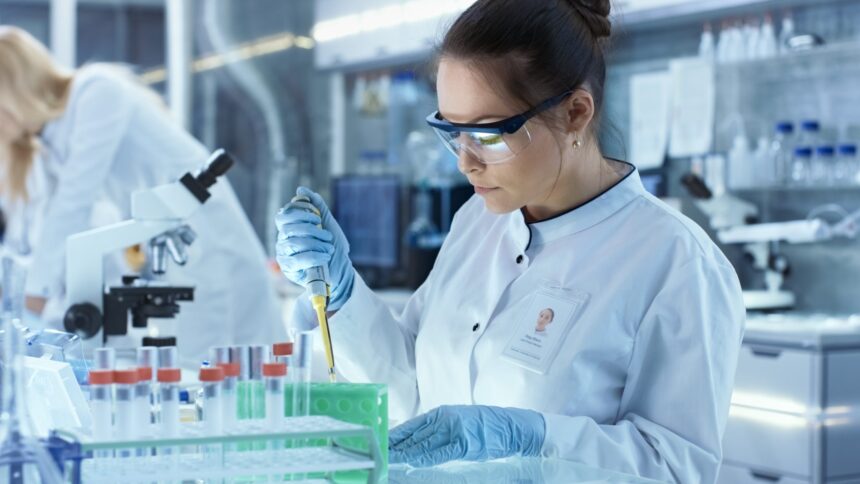It’s been about a year since biotechnology companies made a massive update from apex Pharmaceuticals, which is developing futuristic therapies that could represent a treatment for type 1 diabetes. Today, on the first day of the American Diabetes Association’s annual science session, Vertex released new results from a groundbreaking experiment.
These results are surprising. The first two patients at the apex no longer require insulin injections to manage their glucose levels, and all other patients undergoing experimental treatment show impressive improvement in blood glucose.
Introducing the VX-880
The treatment, named VX-880, is the transplantation of new islet cells grown in the laboratory from pluripotent stem cells. These healthy new islet cells are surgically inserted into the patient’s portal vein and provide blood from the pancreas to the liver. When properly placed, new islet cells can sense blood glucose concentrations and secrete insulin on demand like healthy, natural islets.
Trevor W. Reichmann, MD, PhD, surgeon director of pancreatic and islet cell transplantation at the University of Toronto Azimella Transplantation Center, calls the VX-880 “a potential gamechanger for the treatment of type 1 diabetes.” ”
We already knew that cell transplantation of the islets would work. Some lucky transplant recipients enjoy healthy blood sugar levels without using insulin for more than a decade. Until recently, however, doctors were able to harvest viable cells only from the pancreas of deceased organ donors. Such donor cells are so scarce that in extreme needs, the procedure is rarely performed. (And in the US, it’s not done at all.)
In October 2021, the vertebra shared the news that the first patient known only as Patient 1 had reduced insulin use by 91%. Before the implantation, he used an average of 34 units of insulin per day. His A1C was 8.6%, surpassing most adults’ international glycemic targets, with zero detectable spontaneous insulin production.
90 days after the procedure, Patient 1 reduced daily insulin usage to just 2.9 units. He also enjoyed a decrease in A1C, dropping to a healthier 7.2% despite using 91% less insulin. His insulin production was rebounding to the lower end of the normal range. New York Times An exclusive interview with Patient 1 was presented. We found out that Shelton was a 64-year-old man named Brian Shelton, who said that he “may be the first person to cure type 1 diabetes.”
Shelton’s condition has definitely improved, but some people in the diabetic community have bristled the “treatment” description, pointing out that both his A1C and his insulin use seem to confirm that he still has diabetes.
But after about six months, the news got even better. Shelton completely stopped using insulin injections and his A1C improved to a completely healthy 5.2%. At this point, it seemed accurate to say that Shelton no longer has type 1 diabetes, but he needs immunosuppressants to protect new islet cells.
Latest results
Currently, we have details of six patients who have undergone VX-880 procedures. Prior to implantation, each of these volunteers had zero detectable natural insulin secretion, each with a history of severe hypoglycemia events and recognition of hypoglycemia. These volunteers began the study with an average A1C of 8.13%.
All six patients demonstrated:
- Restorated insulin secretion
- Improved glycemic control
- Improved range time
- Reduced use of insulin injections
- Complete lack of severe hypoglycemic events
We currently have two patients who have completed a year since the transplant. Shelton is currently free of insulin for a total of 21 months. Like Shelton, the second patient has completely ruled out insulin injections and has a comfortable and comfortable measurement of the diagnostic threshold for diabetes (6.0%). In the last few months, both have reached a range of over 96%.
Of the remaining patients, three were only 90 days completed, but “the trajectory is consistent” with the positive results of the first two transplant recipients. Dr. Reichmann said the last patient had to cancel the study “for reasons not related to the trial.”
Is it a “treatment”?
If a VX-880 recipient does not need insulin injections to achieve healthy blood glucose levels – assuming that new implanted islet cells will continue to function just as well in the near future – can you say that treatment is a real treatment for type 1 diabetes?
That’s an unresolved question. Some of the diabetes research community are still reluctant to explain any solution that requires immunosuppressive drugs as “treatments.” VX-880 recipients should take immunosuppressants for the rest of their lives to protect new islet cells. In an interview with him The eraShelton reported that anti-injectable drugs “causing no side effects,” but new data show that some patients experienced mild side effects common to these drugs.
In 2022, James Shapiro, Maryland, explained this by the surgeon who performed the world’s first pancreatic islet cell transplant. Diabetes daily “Immunosuppressive drugs are a major barrier to why we don’t transplant many cells today. Risks include increased risk of cancer, increased risk of life-threatening infections, side effects on the kidneys, and the functioning of transplanted cells, and the ability to produce insulin.”
The apex pursues one or more treatments aimed at exceeding VX-880 by completely avoiding the need for immunotherapy. In March, Vertex announced that it would begin experimenting with the VX-264. It encapsulates lab-grown islet cells “in a channel array device designed to protect cells from the body’s immune system.” I also purchased a competitor Viacite, which last year started experimenting with gene-edited islet cells to avoid detection from the immune system.
Whether you consider it a “treatment” or not, the impressive results of the VX-880 are hoping that scientists will approach treatments that allow some patients with type 1 diabetes to achieve insulin independence. At this time, we don’t know how long it will take for the VX-880 to obtain FDA approval, how much it will cost, or whether it qualifies for treatment.
(TagStoTRASSLATE)A1C(T)Beta Cell(T)Therapy Research(T)Diabetic Treatment(T)Insulin(T)Intensive Management(T)Islet Transplantation(T)Hypoglycemia(Hypoglycemia(Hypoglycemia)(T)US Food and Drug Administration(FDA)(T)Apex(T)Bilitite











